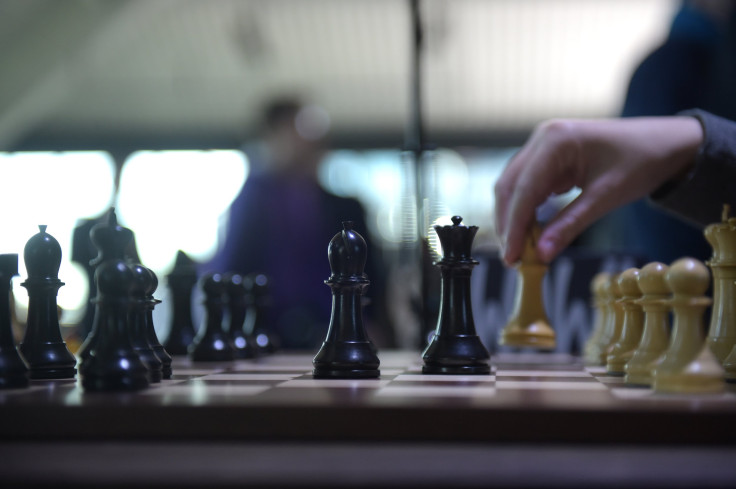Mandatory Chess In Russian Schools? Senator Proposes Board Game Lessons Instead Of Physical Education

In the wake of Russian grandmaster Sergey Karjakin's World Chess Championship narrow defeat last month, a senator in Russia has proposed making the game a mandatory high school subject. Senator Vadim Tyulpanov suggested recently that the Education and Science Ministry swap physical education classes for chess lessons in secondary school, the Moscow Times reported Thursday.
Tyulpanov claimed learning about and playing chess could benefit children with disabilities in particular.
"It is important that the introduction of the discipline in the school curriculum will allow students released for medical reasons from physical education to participate in sports, and thus get a taste of wrestling and well-deserved victory," he said, according to a rough translation.
Russians have loved — and dominated — chess for centuries, in part because the Soviet leadership made it a state-sponsored pastime, holding matches and organizing clubs dedicated to the intellectual game, according to Slate. Currently, 23 of the top 100 chess players in the world are from Russia. Karjakin, 26, may have lost last month to Norwegian challenger Magnus Carlsen, but he remains the youngest ever grandmaster.
Chess can help kids learn how to concentrate, figure out patterns, practice a skill, solve problems and engage in good sportsmanship, according to Chess Educators. The younger they start playing chess, the better, because they "have brains like sponges," Robert Ferguson, the executive director of the American Chess School, told Parents Magazine.
It can also be simply enjoyable.
"Someone who is 4 can play someone who is 104; someone that can't walk around can play a top-class athlete," Malcolm Pein, chief executive of Chess in Schools and Communities in the United Kingdom, told BBC News in 2011. "Sometimes children that have been overlooked in other ways — maybe the quietest or physically smallest child in class — could be the best."
If Russia decides to make chess lessons mandatory, it will join a group of countries that have already included the game in their curriculum, among them Armenia, Spain and Hungary.
© Copyright IBTimes 2024. All rights reserved.






















